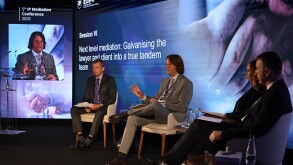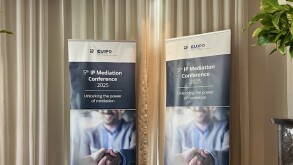In a wide-ranging interview with Managing IP conducted last week (before the House Judiciary Committee markup of Chairman Goodlatte's Innovation Act yesterday) Lo says it is "well acknowledged" that there is a patent troll problem in the United States.
"When you get to arguments that 'I have a patent, I should be able to do whatever I want with it', it takes you far from the purpose of the system," said Lo. "We've ended up where there are inefficiencies and problems with implementations with how patents are granted and in court the costs and burdens are asymmetrical."
He said that Google/Motorola faces about 100 active troll cases at any time, with the number increasing year on year. The cost of defending this litigation is in the tens of millions of dollars, but Lo claimed it is distraction of engineers and executives that is having a real impact on the company's business.

Lo (right), who joined Google in January 2012, welcomed Goodlatte's bill (one of several being discussed in Congress), including the controversial proposal to expand the Covered Business Method programme, which was removed during the mark-up. "Our view is we want a balanced system but also one that addresses the problem, a lot of which is around business method patents," he said.
Asked if it is the case that too many patents are granted, Lo said: "Too many bad patents are being granted. We have not been advocating that patentability standards should be changed, but that existing ones should be applied."
Challenged on whether Google itself owns some of these "bad patents", Lo responded: "We have a large portfolio, so would this affect our patents? I can't say definitively, but it is possible. We are more than willing for our portfolio, which we have paid a lot of money for, to go through the same review process so if we have to enforce a patent it will stand up to the standard of patentability that the courts and Congress have set."
Following the acquisition of Motorola Mobility, Google owns some 50,000 patent assets worldwide and is filing about 4,000 patent applications a year. Lo said it will continue to invest in patents, but added: "We don't have to rapidly build up the portfolio like we did three years ago and we may be able to divest patents if we need to, if it will help our ecosystem to be successful in the marketplace."
Google has been criticised out by opponents of patent reform as a company that is using influence in Washington DC to push for a weaker patent system.
But Lo denied the company was seeking a free ride on other's patents, saying it wants to create more certainty and efficiency in the patent licensing process: "The problem is that demands are unreasonable in terms of what patent owners feel they are entitled to. We're seeing a lot of bad and invalid patents asserted against us. That's the bulk of what we're dealing with."
Read the full transcript of the interview, which also covers the development of Google's patent strategy, some of its own initiatives to deal with patent trolls and Lo's views on standard-essential patents.









